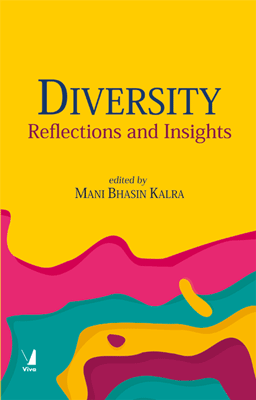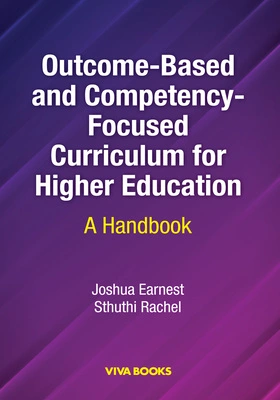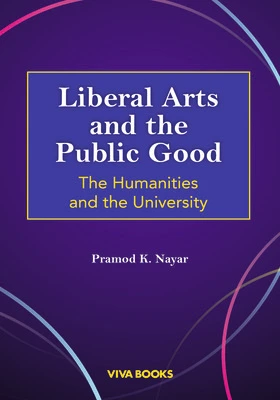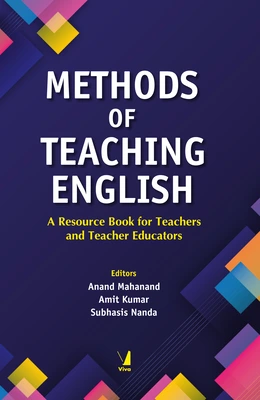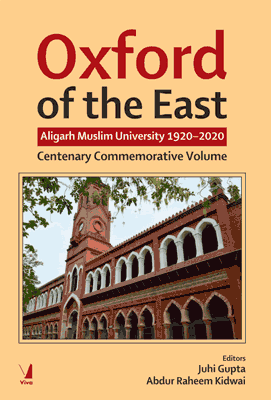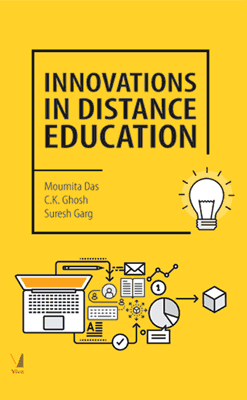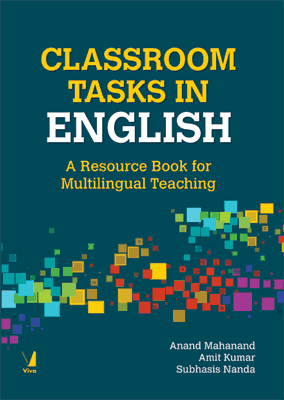Diversity
Diversity
Reflections and Insights
₹985.50 ₹1,095.00 Save: ₹109.50 (10%)
Go to cartISBN: 9789387925205
Bind: Hardbound
Year: 2018
Pages: 310
Size: 6 x 9 Inch
Publisher: Viva Books Originals
Sales Territory: Worldwide
Diversity is how we co-exist and needs to be celebrated, enjoyed and must not lead to segregation and discrimination. In diversity we must look to sustain a continuity in identity, which is only possible if diversity is given its true recognition and then, we learn in diversity - value the difference and draw upon the widest possible range of opportunities, challenges, views and experiences. Diversity may be referred to as the uniqueness that exists in a group of people which includes age, physical abilities, caste, class, gender, region, religion, belief, sexual orientation and the like. It means understanding that each individual is unique, and we all have our individual differences but, at the same time we "live together".
The book Diversity: Reflections and Insights recognizes that diversity needs to be celebrated and that equality of access and opportunity, promotion of diversity and the removal of discrimination is fundamental to improve classroom practices and a cohesive society.
Each of the papers views equity and diversity from different perspectives. All the researches are ambitious having taken a comprehensive review of the issues underpinning the evidence of the benefits of equity, diversity and inclusion. The papers focus on the experiences and ideas of development in both research and practice, recognizing the need to have inclusivity.
The researches will contribute to a larger discourse to make an impact and will be able to inform policy development and initiatives in the area of equity and diversity. The book will have a wide readership at all levels of education and disciplines and will be useful for all the stakeholders from preschool to higher education and also students of education, sociology, social anthropology, linguistics, students of teacher preparation such as B.Ed., B.El.Ed. and M.Ed., M.Phil., Ph.D. and teachers from schools and from higher education and the like. This volume should find an important place in the libraries of colleges and universities in India and abroad.
Target Audience:
For the students of education, sociology, social anthropology, linguistics, students of teacher preparation such as B.Ed., B.El.Ed. and M.Ed., M.Phil., Ph.D. and teachers from schools and from higher education and the like.
Contents:
Foreword
Acknowledgements
The Contributors
Introduction (Mani Bhasin Kalra)
Section 1: The Context • Ensuring Equity in Diversity
Chapter 1: The Challenges of Equity and Diversity: Implications for Schooling (Girish Bala Choudhary) • Abstract • Context • Understanding Diversity, Equity and Inclusion in Education • Conceptualization of Diversity is Inexplicably Linked to the Principles of Equity • Challenges and Implications for Schooling • The Disconnect between Diversity/Equity and Educational Excellence is a Major Issue of Concern • Language Differences Pose a Unique Challenge • Prevailing Political Ideologies vis-à-vis School Access and Equal Educational Opportunity • An Equity • Efficiency Trade-off Continues and Acts as a Barrier • Action Beyond the Education System • Education as a Critical Resource • References
Chapter 2: Experiences of African-American Female First Generation College Students (Ashley Green) • Abstract • Introduction • Background and Issues with First Generation College Students • Problem and Purpose • Rationale and Significance • Conceptual Framework • Methodology Overview • Literature Review • Theoretical Framework • First Generation Defined Through Participants Voice • Themes • Participant Sources of Motivation • Discussions • Motivation • Implications and Recommendations • Summary and Conclusion • References
Chapter 3: Towards Bringing Every Child into the Realm of Education: Right to Education Act 2009 and the Status of Special Training Programme (Ruchira Guglani Chawla) • Abstract • Introduction • The Perplexity of Numbers • Special Training Programme: The Ground Reality • Curriculum • Teacher's Qualification • Parting Thoughts • References
Chapter 4: Social Inclusion of Dalit Women: A Philosophical Perspective (Manvi Yadav) • Abstract • Introduction • Origin of Caste and Untouchability • Dalits • Exclusion to Inclusion of Dalit Women • Structure of Oppression • Philosophy of Liberation in Context of Dalit Women • Conclusion • References
Chapter 5: Will Secondary School Lead to a Future I Have Reason to Value? Exploring Imagined Futures of Tanzanian Girls and the Role of Education in these Futures (Alyssa Morley) • Abstract • Introduction • Girls? Education in Sub-Saharan Africa • Conceptual Tools: Capability Approach and Imagined Futures • Case Study: Operationalizing the Capability Approach with Girls in Rural Tanzania • Findings: Desired Functionings and their Elusiveness in Kusini • Discussion • References
Chapter 6: Transgender: A New Dimension in Classrooms Today (Dimpal Kumari) • Abstract • Introduction • Visibility of Transgender(s) • Gender, Society and Classrooms • A Complex Milieu of Coercion and Power • Patriarchy and Alienation of Transgender • Sex and Gender • Role of School as Social Agent • Transgender Issues in Education • Role of Teacher: For Inclusion of Transgender Learners • Status of Teacher Education Programmes in Addressing Transgender Issues • Conclusion • Notes • References
Section 2: The Practice • Insights from the Field
Chapter 7: Towards Equity in Learning in Diverse Multilingual Classrooms (Binay Pattanayak) • Abstract • Background • Language Diversity and its Implication for Children's Learning • Bhasha Puliya ... Pre-School Education Programme • Sevika Welcomes Community Learning Resources • A Forward Move • Towards Equity in Classrooms and Society • References
Chapter 8: Inclusion: Role of Games in Multicultural Classroom (Neelima Asthana) • Abstract • Introduction • Classroom Dynamics • Method • Discussion • Role of Games in Breaking the Barriers • Conclusion • References
Chapter 9: Adopting Inclusion for Equity in Education: A Study on Adaptation of Curriculum and Pedagogic Practices for Children with Special Needs (Bhawna) • Abstract • Inclusive Education • Policies and Perspectives: Efforts of the Indian Government in the Post-Independence Era • Learning Disabilities: Definition and Meaning • Effective Inclusive Practices: Classroom Adaptations • Objectives of the Study • Design of the Study • Tools of Data Collection • Analysis and Interpretation • Conclusion • References
Chapter 10: Re-Envisioning the Roles and Responsibilities of Special Educators in Developing Inclusive Practice in the Diverse Socio-Cultural Context of Indian Schools (Nisha) • Abstract • Introduction • Objectives • Methodology • Participants • Discussion • Way Forward • Conclusion • References
Section 3: The Pedagogy • Re-envisioning
Chapter 11: Growing up With the Salt of the Earth: Looking into the Ways of Learning in the Agariya Community in Gujarat (Deepti Gupta and Bhanumathi Sharma) • Abstract • Introduction • Competence as Viewed by the Community • Conversations with "Mana" • Communities Wisdom • Communities Wisdom and Its Place in the Present Discourse on Education • The Four-fold Concept of Knowledge i.e, adhikari, vishaya, prayojana and sambandha in Vedantasara • Conclusion • References
Chapter 12: Multilingual Education: Theory, Experiences and Implications (Syedah Fawzia Nadeem) • Abstract • Introduction • Multilingualism • Types of Multilingualism • Benefits of Multilingualism • Using Multilingualism in Classroom and MLE • References
Chapter 13: Managing Diverse Students in Classroom: Experience of Faculties in Central Universities in India
(Shafia Jalal) • Abstract • Introduction • Diversity Management: An Overview • The Context • Methods and Sources • Analysis of Data • Understanding the Concept of Diversity • Difficulties Faced by the Faculties in Making the Class Inclusive • Skills Required in Managing Diverse Students • Conclusion • References
Section 4: The Teacher • Making the Difference
Chapter 14: Inclusive Practices for Transformational Education: Are Our Teachers Prepared? (Geetika Dutta) • Abstract • Introduction • Inclusive Practices in India • References
Chapter 15: Shaping of the Identity of an African-American Teacher Through his Journey into Islam (Patrick N. Leahy) • Abstract • Introduction • Life History, Embodiment, and Values • Becoming Racial, Becoming Global • Teacher Education and Conversion to Islam • Influenced by Troubled Youth • Return to High School • The Islamic School • Cultivating Value: Connecting Students to Islamic and American Cultures • Conclusion: At Home in School • Notes • References
Chapter 16: "Science for All": Examining the Construct from Multilingual Perspective (Garima Bansal) • Abstract • Introduction • Why "Science for all" is Important? • The National Context • Modes of Inquiry • Participation in Science Classroom Interactions • Linguistic Challenges in Multilingual Science Classrooms • Culturally-Responsive Science Practices • Instructional Strategies • References
Chapter 17: Curricular Provisions Focussing on Diversity and Equity in Teacher Education (Kavita Ghosh) • Abstract • Introduction • Elaborating upon the Conceptual Framework • Discussion and Conclusion • References
Chapter 18: Teachers- Understanding of Diversity in Indian Science Classrooms: Ignorance or Pedagogical Neutrality? (Priyanka Varshney) • Abstract • Introduction • Policy Pragmatics • Inclusive Science Education • Science Teachers- Understanding and Awareness of Diversity • Need for Reforms in Teacher Education Programmes • Concluding Remarks • References
The Way Forward
Index
About the Editor:
Mani Bhasin Kalra is an associate professor at the Department of Education at Lady Irwin College, University of Delhi, India. With a doctorate in education and almost twenty-five years of experience in teaching and research in the area of teacher education and teacher thinking, her interest areas comprise researching specific issues in elementary education, teacher beliefs, issues of diversity and equity and gender and education.
She has a vast experience of working in the field in rural, urban, remote and tribal areas of India on various projects. She has been actively involved in programmes and outreach events that help promote learning and support the community.
She is a writer and a resource person, and consultant for development of course materials, for in-service and pre-service teacher education programmes.
Mani Bhasin Kalra has presented papers at national and international conferences and has a distinguished record of publishing in academic journals. She is also on the editorial boards of many education journals.
She has co-edited two publications, Learning: Issues and Aspects and Learning Teachers: Diversity, Inclusion and Ethics. She is presently involved in bringing together a publication of researches in gender and education.
